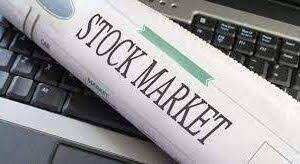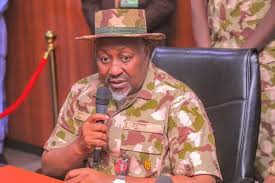Agenda setting is the process of creation of public awareness and concern of salient issues by the news media. Agenda-setting describes the way the media attempts to influence viewers, and establish a hierarchy of news prevalence.
One of the most critical aspects in the concept of an agenda setting role of mass communication is the time frame for this phenomenon. Mass media coverage in general and agenda setting in particular also has powerful impact on what individuals think. Hence, they tend to attach more importance to issues that have been extensively and repeatedly covered by mass media. The role of the media should dominate public discourse with implications for the future, especially social and developmental issues.
Agenda setting is one of the social responsibilities of journalists in the field of journalism but unfortunately the Nigerian press woefully failed to do so. It has been observed that most of the Nigerian press and their various media take side in terms of disseminating their information. There are so many contemporary issues in the country that the press needs to set an agenda on for the public to discourse instead of being sentimental and bias in their reportage which includes poverty, corruption, inequality between wealthy and poor, terrorist attacks, crises, juvenile delinquency, child mortality, high rate of unemployment, low level of education, kidnapping, child labour, rape, militancy and the like.
Among the aforementioned problems, there are two major issues that are currently itching on the country are ethno-religious crises and herders/farmers clashes and poverty. On the issue of herdsmen and farmers, the mass media needs to set an agenda for the public on this issue so that the public will understand that herders/farmers clashes and ethno-religious crises are political, economic and social influences by some disgruntled elements.
Most Nigerians criticised former President Goodluck Jonathan over his poor handling of the Boko Haram insurgency and the opposition used this as a campaign issue against him. Similarly, on the current issues of ethno-religious crises and herders/farmers clashes in the country, some politicians like the former Governor of Ekiti state, Ayo Fayose, accused President Muhammadu Buhari of sponsoring the herdsmen.
On the issue of poverty, the citizens also need to be sensitised on the way out of poverty. The public are supposed to know the causes of poverty and the remedy. Production and consumption which is one of the Sustainable Development Goals (SDGs) expected to be achieved in 2030 is still poor. For instance, it is obvious that a lot of Nigerians prefer imported goods to those made locally.
There is high level of preference to foreign goods over local which can easily be produced locally. It’s generally assumed that made-in-Nigeria goods are fake and substandard. Until Nigeria starts producing standard goods and Nigerians have a different mentality, the demand for foreign goods and services are adversely affecting the Nigerian manufacturing industry and the economic growth.
Agenda can be set on such issues by the media to educate the citizens. This calls for the press to put in a high sense of social responsibility in applying agenda setting on salient issues in the dissemination of news and programmes to the public, by avoiding being bias and sentimental for the betterment of the society. It’s hoped that the Nigerian press will try their utmost best to look at critical issues that will move the country forward socially, politically and economically rather focusing on irrelevant issues that only result in bringing about hate speeches and disunity in the country.
Aisha K. Dauda,
Department of Mass Communication,
University of Maiduguri



